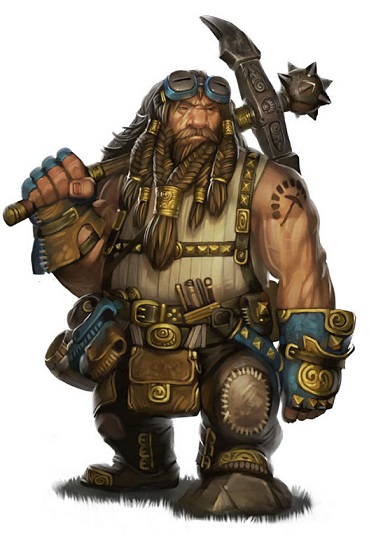
| Category | Races |
| Type | dwarf |
| Language | Dwarven |
| Native | Bal-Kriav |
The story of the Mezrack, a dwarf people, began on a moon named Dûlan-Nûl. Around 310 HE, digging deep with magic and the aid of earth elementals, the Mezrack discovered an ancient primordial war machine they jokingly named Tarâks Phallus. Known in the Creation War (1486 DE - 8777 DE) as the World Splitter, the miners plundered deep veins of iron, gold, gemstones and other precious resources. Twenty years later, in 330 HE, the moon of Dûlan-Nûl split apart. Those inside the World Splitter were cast into the Void, then ending up as part of Dûlan-Nûl Firestorm, raining down upon the world of Bal-Kriav. After the destruction of Dûlan-Nûl, and much of the World Splitter, only a thousand survivors out of a people once a million-strong. After leaving the device's diamond drill head, the Mezrack resettled the ancient ruin of Azaraglad.
In 297, Mezrack settlers left the Isle of Arcana for new lands. They did this in a massive submersible found at the Nautilus Crag of Felth. This Lith-Crillion vessel, a Âni-Nâthil, what could be described as a colonizer ship with the type of facilities aboard, easily accommodated the two hundred or so that set-out for new lands. A month later they found good lands for settlement on Cinduk. In 298, they founded the settlement of Agibandal.
Another group of settlers left Mîmig-Khâla in 344. They used the same Pod Nautiloid as those that left in 297. Twice the size of the last group, numbering close to four hundred, they set out north into the Nielalroch Sea. By way of the Sea Tunnel, they were taken far east to the coasts of Enkii Jusk. From there, they went north to Klo'nah Lomok and then inland where they established the settlement Ilbaragûn.
| Trait | Description |
|---|---|
| Racial | as dwarf |